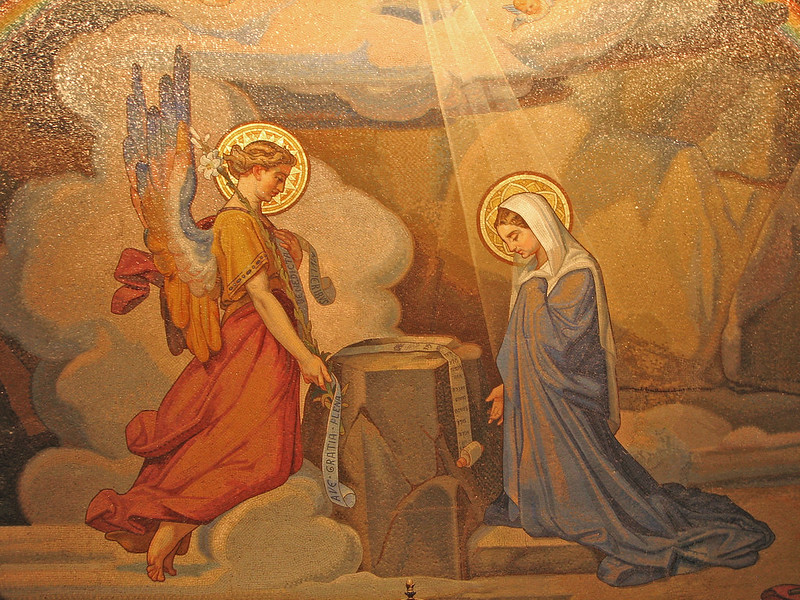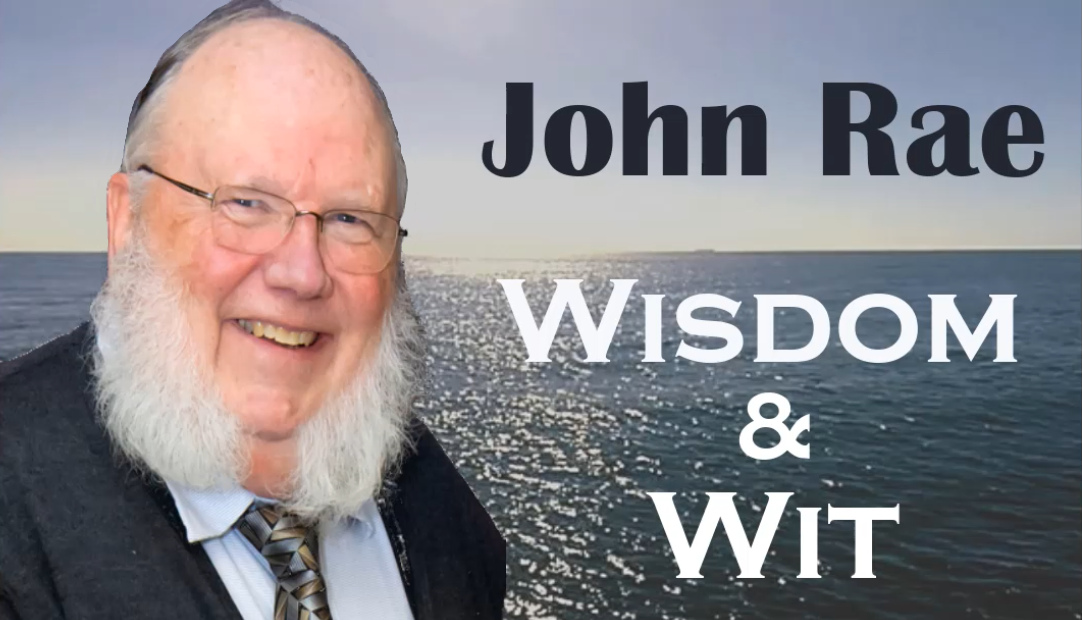This presentation is from a series of talks on Luke’s Gospel. It contains some points to consider before starting to go through the Gospel, chapter by chapter. I’m indebted to the insights of Gil Bailie, for some of the material in this study.
Luke was probably a Gentile by birth, well educated in Greek culture. The Gospel is specifically directed to Theophilus (1:3), whose name means “one who loves God”.
Written to the church in Antioch in A.D. (62-65) or (80-90), the church Antioch (Syria) were primarily Gentiles who would have been converted by Paul and some would be second generation Christians, with a limited knowledge of Jewish culture.
Luke is a re-teller of stories. In his preamble he says that he has compiled a narrative from all the sources that he can find, checked them for accuracy and written things down in an orderly sequence.
Luke tells stories that none of the other gospel writers tell, some of our best loved stories. Luke was a master story-teller. His stories are the ones that leap out of the NT: the Good Samaritan, the Prodigal Son, the road to Emmaus, and...
The Christmas story. We would not have Christmas as we know it without Luke's story? We conflate Matthew's and Luke's Christmas stories for our own.
We wouldn't have Mary as the church has come to know Mary without Luke's Gospel. ie the Magnificat.
Main Cast of Characters: Holy Spirit, Mary the mother of Jesus, Jesus of Nazareth, John the Baptist, Peter, James and John (the sons of Zebedee), the Jewish leaders opposed to Jesus, Judas Iscariot and Pontius Pilate. Plus a host of supporting characters.
Like watching “Lord of the Rings”, the first time through you get the flow of the story but in second and subsequent viewings you start to notice the nuances and things start to open up for you.
How does Luke use stories?
Martin Buber, the Jewish philosopher compiled a book of Hasidic Tales. Hasidic Judaism was a movement that started in 18th Europe and one of its features was travelling rabbis. The most famous being the Baal Shem Tov, in notoriety you could say that he was a Jewish version of Bishop Fulton Sheen.
One of the stories about stories from Martin Buber’s books goes like this:
A Rabbi, whose grandfather had been a disciple of the Baal Shem Tov, was asked to tell a story. “A story”, he said, “must be told in such a way that it constitutes help in itself.”
And he told the following story: “My grandfather was lame. Once they asked him to tell a story about his teacher. And he related how his teacher, the holy Baal Shem, used to hop and dance while he prayed. My grandfather rose as he spoke, and he was so swept away by his story that he began to hop and dance to show how the master had done it. From that hour onward he was cured of his lameness.”
Now that’s the way to tell a story!
Stories are messengers of meaning and the poet Ezra Pound characterizes the process of the discovery of meaning as, “the dance of the intellect among the words”. Luke’s Gospel is the Gospel of the Holy Spirit so to expand a bit on Ezra Pound’s definition. In Luke our dance partner for the waltz through the words of the gospel is the Holy Spirit, with the end result that it is our spiritual lameness that is cured.
We’ll look at the opening story in Luke:
"Do not be afraid": a refrain of the angels in these opening stories. We need to remember the backdrop: religious terror. The message of the angels from God is to not be afraid; real news for archaic religion, suffused with holy terror. For example when the god or an angel Pan or Baal showed up someone always dies a horrible death.
Elizabeth and Zechariah. An angel appears to Zechariah in the temple. In the “Holiest of Holies”. This message is a retelling of an old story: that of Abraham and Sarah. Zechariah doesn't believe and is made mute. Abraham visited by strangers (Angels) - Sarah “I’ll believe it when I see it – Laugh.”
In the sixth month - The Visitation: Angel appears to Mary. Same message and same refrain. But, while Elizabeth is too old to have a child, Mary is too young; she is still a virgin, a young maiden.
Dante's Paradiso: at the beginning he says, 'If you have eaten of the bread of angels (panis angelicus, the Eucharist), then go ahead and read; if you haven't, then don't bother reading because you aren't going to get it.' In other words, if the idea of the real presence of Christ in the Eucharist is something you can't get your mind around, then there's not a chance in the world you're going to be able to get your mind around the Paradiso. If the mystery of that is a stumbling block, then there is a place beyond which you cannot go.
Similarly, with the virginity of Mary. A minimalist view: No attempt to account for the meaning of Jesus' life can succeed in doing so without taking into account divine intervention. If God's intervention is inconceivable to you, then there are aspects of the Christian mystery that are out of your range.
Hermeneutical Device (Virginity of Mary) is really the instructions on how to read the Gospel.
God’s main problem is how to give away God! But God has great difficulty doing this. You’d think everybody would want God. But the common response is something like this: “Lord I am not worthy. I would rather have religion and morality, which gives me the impression that I can win a cosmic contest by my own efforts”. (I would like to have and to manage the knowledge of good and evil, on my own terms, thank you very kindly.)
Probably the Annunciation story (Luke 1:26-38) is the crescendo point of the theme of total grace and gift. Did you ever notice that Mary does not say she’s “not worthy”. She just asks for clarification. She only asks “How” because that might ask something more of her. She never asks if, whether or why!
This is quite extraordinary and reveals her egolessness. She becomes the archetype of perfect receptivity. It takes all of the Bible to work up to one perfect vessel that knows how to say an unquestioning yes to an utterly free gift. Every other “election” scene is stymied by the stylized line that sounds so right. “Lord, I am not worthy.” “Of course, you are not worthy”, the Gospel seems to say, “but that was never the question anyway”.
We need an Annunciation to move from having a “Belief System” to having a “Living Faith”. We move from one to the other only through encounter, surrender, trust and an inner experience of presence and power. – Richard Rohr
The meeting of Mary and Elizabeth is a surrogate meeting for the first meeting of John and Jesus. Elizabeth speaks for John and Mary speaks for Jesus. Elizabeth bows and defers to Mary.
Mary responds with the Magnificat,
“My soul glorifies the Lord
and my spirit rejoices in God my Savior,
for he has been mindful
of the humble state of his servant.
From now on all generations will call me blessed,
for the Mighty One has done great things for me—
holy is his name.
His mercy extends to those who fear him,
from generation to generation.
He has performed mighty deeds with his arm;
he has scattered those who are proud in their inmost thoughts.
He has brought down rulers from their thrones
but has lifted up the humble.
He has filled the hungry with good things
but has sent the rich away empty.
He has helped his servant Israel,
remembering to be merciful
to Abraham and his descendants forever,
just as he promised our ancestors.”
The Magnificat is based on Hannah's song. And the story of Mary and Jesus is a filling in and fleshing out of the Hannah/Samuel story just as the Elizabeth and Zechariah story is a filling in and fleshing out of the Abraham and Sarah story.
A living tradition becomes creative precisely in its encounter with its own past.
This song of praise, the Magnificat, summarizes the themes of the whole Old Testament.
Quote from Thomas Dehany Bernard:
"Do we not all know how sentences from the Bible or the liturgy glide into our prayers and offer their unsought aid to express kindred feelings of our own?"
"So here [namely, the Magnificat] the words, as well as the thoughts, are those of a high-souled Hebrew maiden of devout and meditative habit, whose mind has taken the tone of the Scriptures in which she has been nurtured. We feel the breath of the prophets; we catch the echoes of the psalms; we recognize most distinctly the vivid reminiscences of the song of Hannah. Her mind has taken the tone of the Scriptures in which she has been nurtured."
What is the corollary for that in our world? Today, what would we irrupt with? Would we irrupt with the Magnificat? Or with some TV commercial? Or some chunk of dialogue from a soap opera? What is forming us? And whatever it is, it's anything but the scriptures because we believe, as Luke did not, that creativity is something other than being steeped in the tradition.
In our world, we tend to think that if something new is going to come into the world, then you have to get rid of the old ideas. We've got to think for ourselves, to do something original.
But Mary is the vessel for the newest thing ever, and she's nothing but the incarnation of the tradition.
…”But Mary kept all these things [in her mind], pondering [them] in her heart" -- What's the difference between pondering them in our heart or in our head (mind). Because we live in a culture based on rationalism, we assume that there's an end to pondering, a point at which you have things figured out. But there is no conclusion to the pondering. Pondering is a way of life that is synonymous with faith.
Our Lectionary Cycle is based on pondering because we return to considering the same scriptures every three years. For you are more likely to find water by digging one well 100 ft deep, in 10 foot segments, rather than in digging 10 wells 10 ft deep. Both methods take the same effort, but the first methodology is the most successful.
As we read through Luke’s Gospel let us put on our “pondering” ears.
Photo credit: Fr. Lawrence OP Detail of the Annunciation






